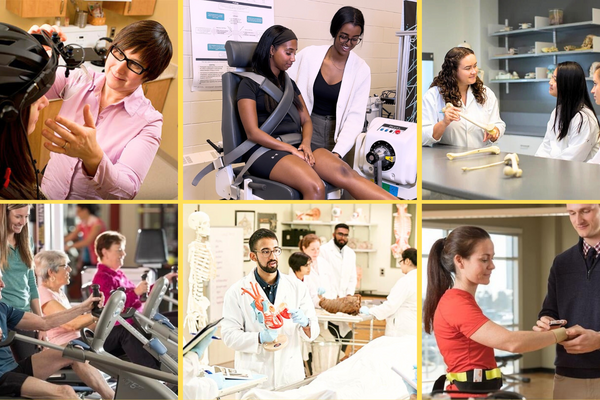
The value of your data
Data expert Asif Khan (BA ’97) offers insight about the data your phone collects, and shares a free service for small businesses during the pandemic

Data expert Asif Khan (BA ’97) offers insight about the data your phone collects, and shares a free service for small businesses during the pandemic
By Megan Vander Woude Office of AdvancementAsif Khan is an expert in data. He’s made a career and company out of the ways our data is collected, stored and used.
If data mining creeps you out, watch our webcast with Asif. He offers some valuable insights about how our data can be used in positive ways — to provide you with better service, or to curb the spread of COVID-19.
When small businesses began collecting information for contact tracing, many of them turned to pen and paper. That didn’t seem very reliable or secure to Asif’s team at GroundLevel Insights.
It’s a slow and manual process at the door and leaves a record of personal information in a public place, for other patrons to see.
“We know lots about data, we know about data privacy,” says Asif. “That’s where we could help. So we built a simple QR-based collection tool.”
That tool, now called CANATRACE, provides small business owners with a faster and more secure way to collect personal information from their patrons, while keeping it away from others who don’t need to see it.
Let’s say you downloaded a new weather app, and it wants to collect your location. By allowing the app to collect and use that data, you’ll receive more accurate and efficient weather forecasts. If you don’t allow it, you may not receive all the weather warnings for your region and you’ll need to manually change your location when travelling to another area.
“We’re seeing an awakening within the consumer population to the value of their location,” says Asif. “If you were to ask the average citizen if they are willing to give up their Uber app, their Waze app, their weather app or their Starbucks app — those apps all use location data to provide services. Sharing my location data is valuable to me and I’m willing to exchange my privacy for that.”
Asif Khan is the founder of the Location Based Marketing Association, a global non-profit organization that helps businesses using location-based data navigate the evolving and complex ecosystem of geo-spatial opportunity. He’s also the founder and CEO of GroundLevel Insights, an artificial intelligence startup that helps businesses and governments turn geolocation data into strategic decisions. In 2020 GroundLevel Insights created CANATRACE, a service that securely collects contact tracing information from employees or patrons during the COVID-19 pandemic. The app is completely free and bilingual.

Read more
A Waterloo couple reflects on the campus that shaped their careers, their values, and their love story

Read more
To meet our AI ambitions, we’ll need to lean upon Canada’s unique strengths

Read more
From optometry and pharmacy to public health and therapeutics, Waterloo alumni are powering Canada’s health care sector
The University of Waterloo acknowledges that much of our work takes place on the traditional territory of the Neutral, Anishinaabeg, and Haudenosaunee peoples. Our main campus is situated on the Haldimand Tract, the land granted to the Six Nations that includes six miles on each side of the Grand River. Our active work toward reconciliation takes place across our campuses through research, learning, teaching, and community building, and is co-ordinated within the Office of Indigenous Relations.